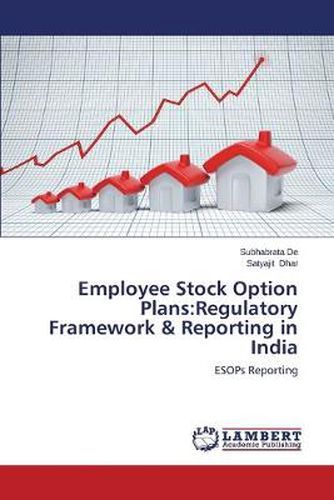Readings Newsletter
Become a Readings Member to make your shopping experience even easier.
Sign in or sign up for free!
You’re not far away from qualifying for FREE standard shipping within Australia
You’ve qualified for FREE standard shipping within Australia
The cart is loading…






This title is printed to order. This book may have been self-published. If so, we cannot guarantee the quality of the content. In the main most books will have gone through the editing process however some may not. We therefore suggest that you be aware of this before ordering this book. If in doubt check either the author or publisher’s details as we are unable to accept any returns unless they are faulty. Please contact us if you have any questions.
For the new millennium, knowledge plays a vital role in the progress of business of a particular organization. Stock option plans are considered to be a highly appreciated tool for attracting and retaining top talent by the companies. Such a plan ties together the shareholder and management interests. Accounting for stock options has been one of the most controversial issues during the last few decades. Employee Stock Option Plan (ESOP) accounting in India has no standard regulatory framework and there is confusion regarding its accounting, taxation and legality. In India, practice of granting stock options to employee was started by the information technology companies in late nineties. The present study has been conducted to observe the trend and techniques for presentation of employee stock option related information in the annual reports by the selected companies in India.In addition, the study is attempted to find the loopholes in the existing regulatory framework of employee stock options in India.Overall, the study would help to develop strategies to manage ESOP grants and subsequent reporting of stock option information more proactively.
$9.00 standard shipping within Australia
FREE standard shipping within Australia for orders over $100.00
Express & International shipping calculated at checkout
This title is printed to order. This book may have been self-published. If so, we cannot guarantee the quality of the content. In the main most books will have gone through the editing process however some may not. We therefore suggest that you be aware of this before ordering this book. If in doubt check either the author or publisher’s details as we are unable to accept any returns unless they are faulty. Please contact us if you have any questions.
For the new millennium, knowledge plays a vital role in the progress of business of a particular organization. Stock option plans are considered to be a highly appreciated tool for attracting and retaining top talent by the companies. Such a plan ties together the shareholder and management interests. Accounting for stock options has been one of the most controversial issues during the last few decades. Employee Stock Option Plan (ESOP) accounting in India has no standard regulatory framework and there is confusion regarding its accounting, taxation and legality. In India, practice of granting stock options to employee was started by the information technology companies in late nineties. The present study has been conducted to observe the trend and techniques for presentation of employee stock option related information in the annual reports by the selected companies in India.In addition, the study is attempted to find the loopholes in the existing regulatory framework of employee stock options in India.Overall, the study would help to develop strategies to manage ESOP grants and subsequent reporting of stock option information more proactively.